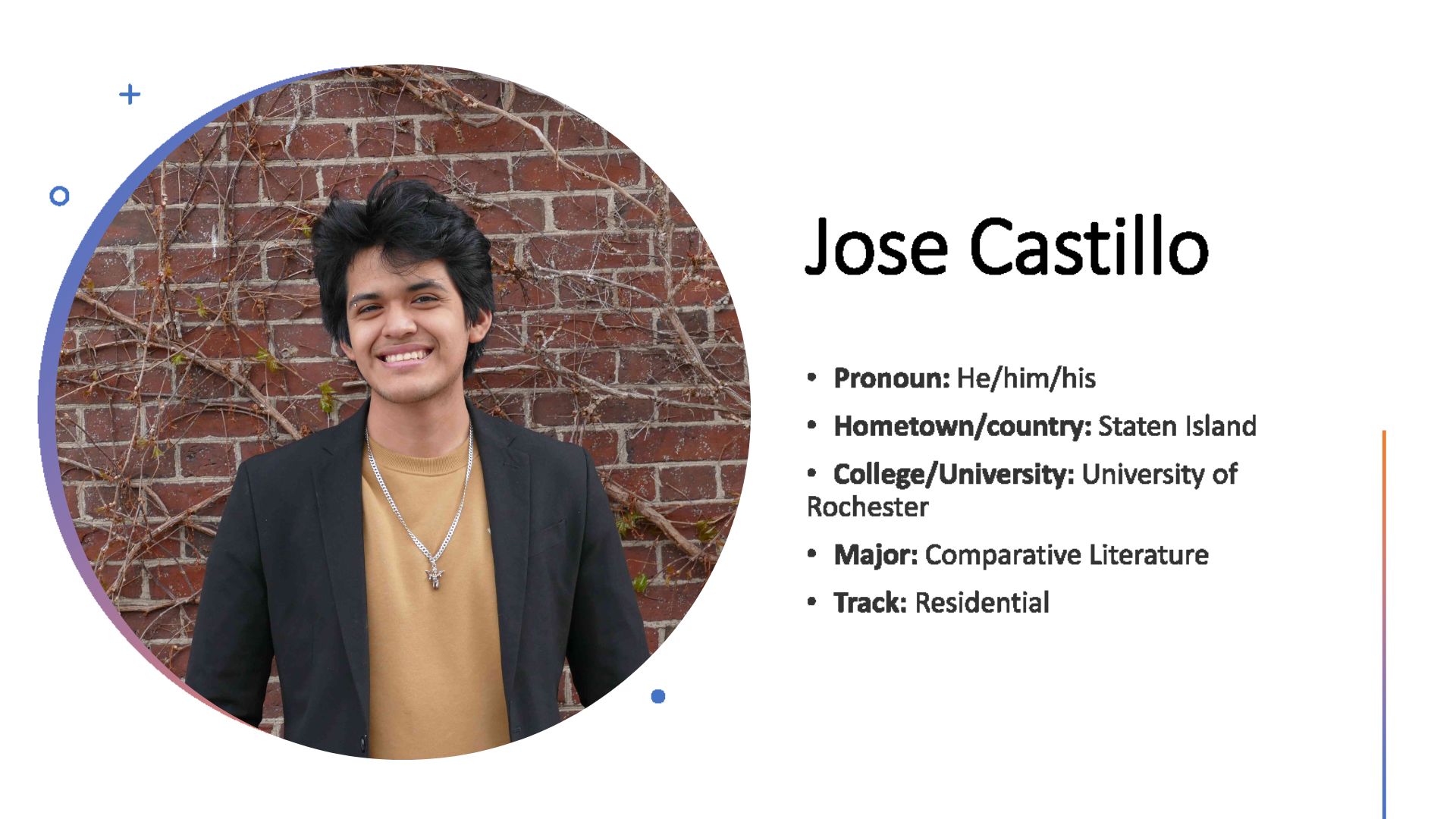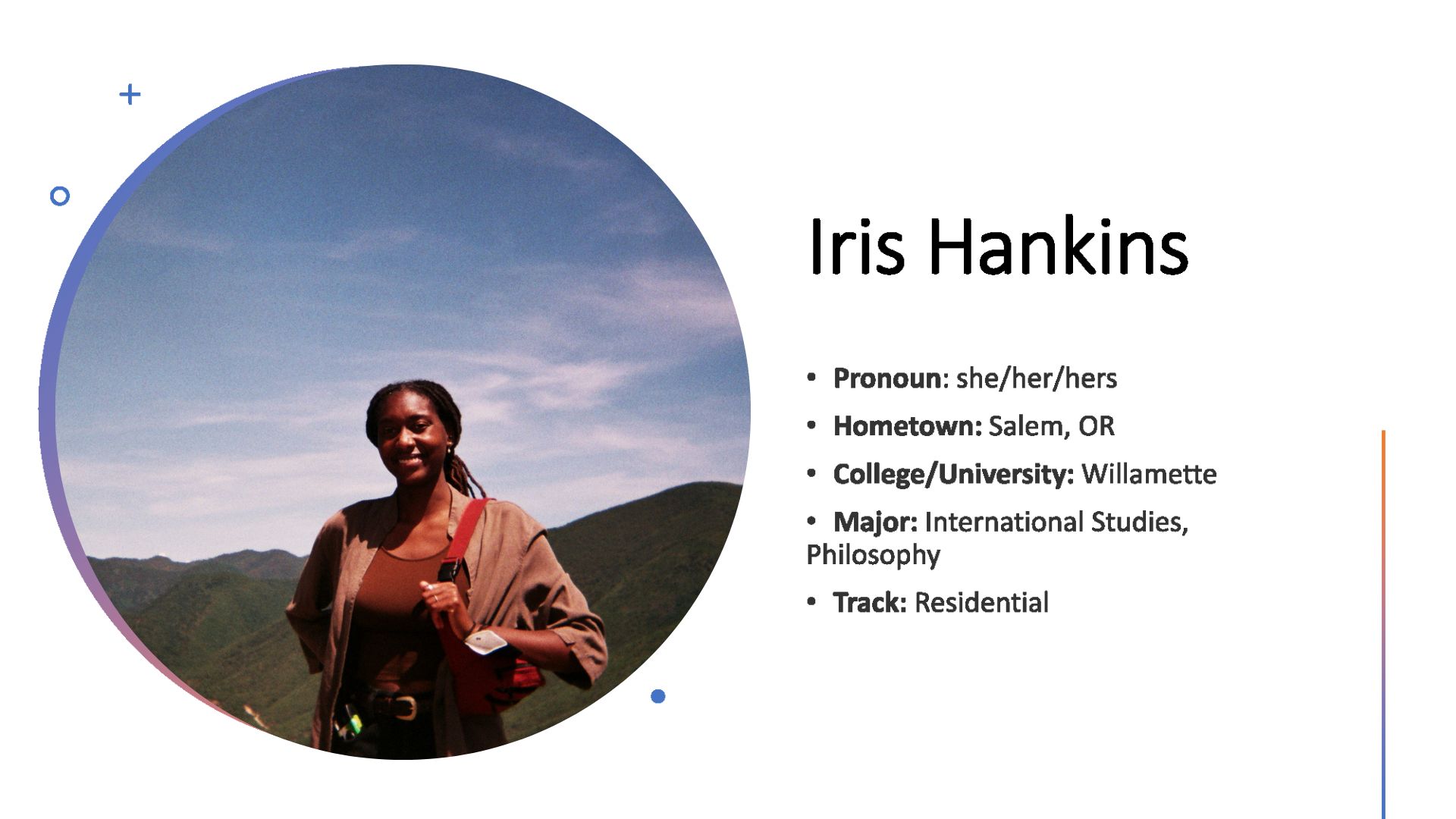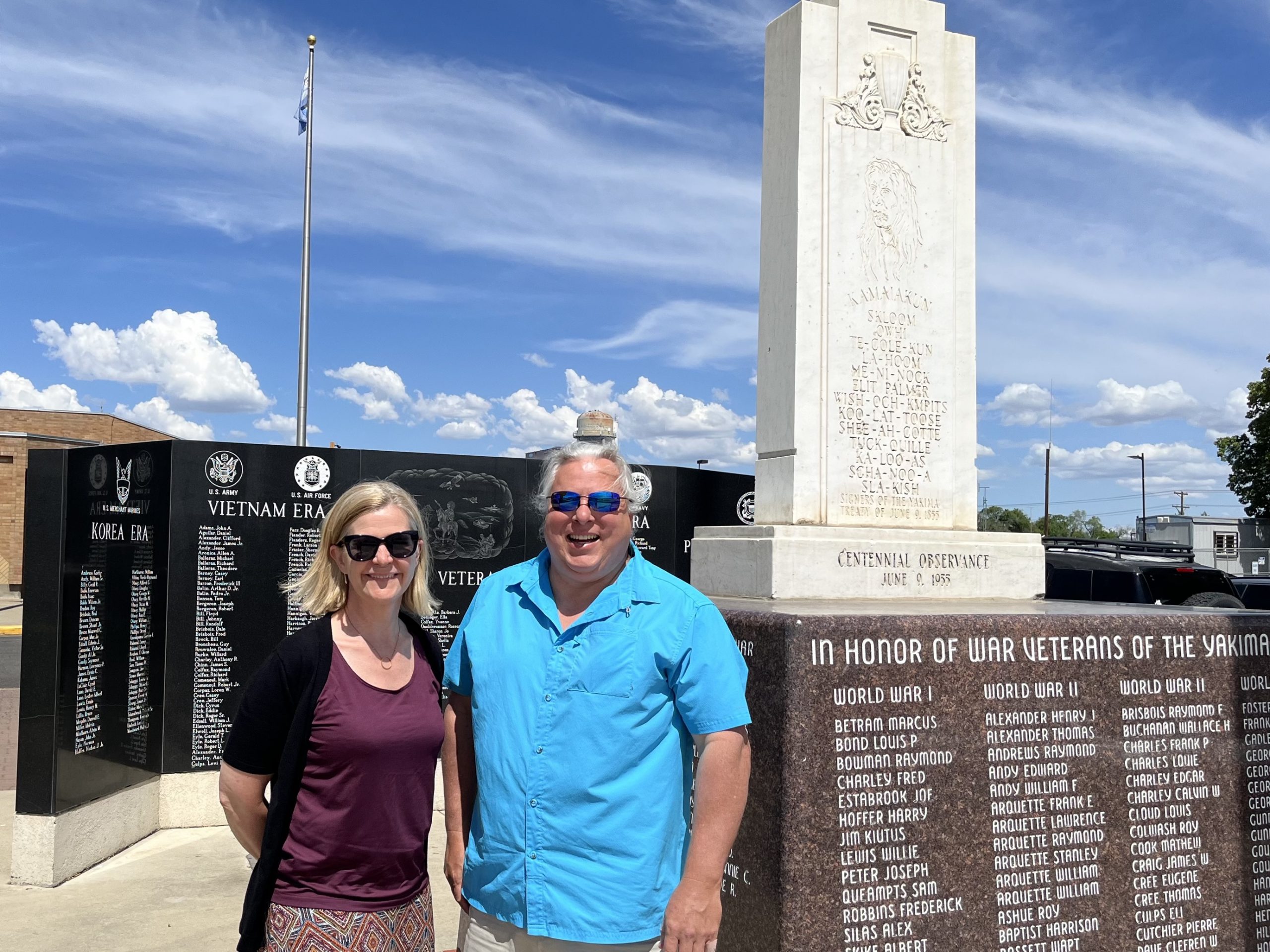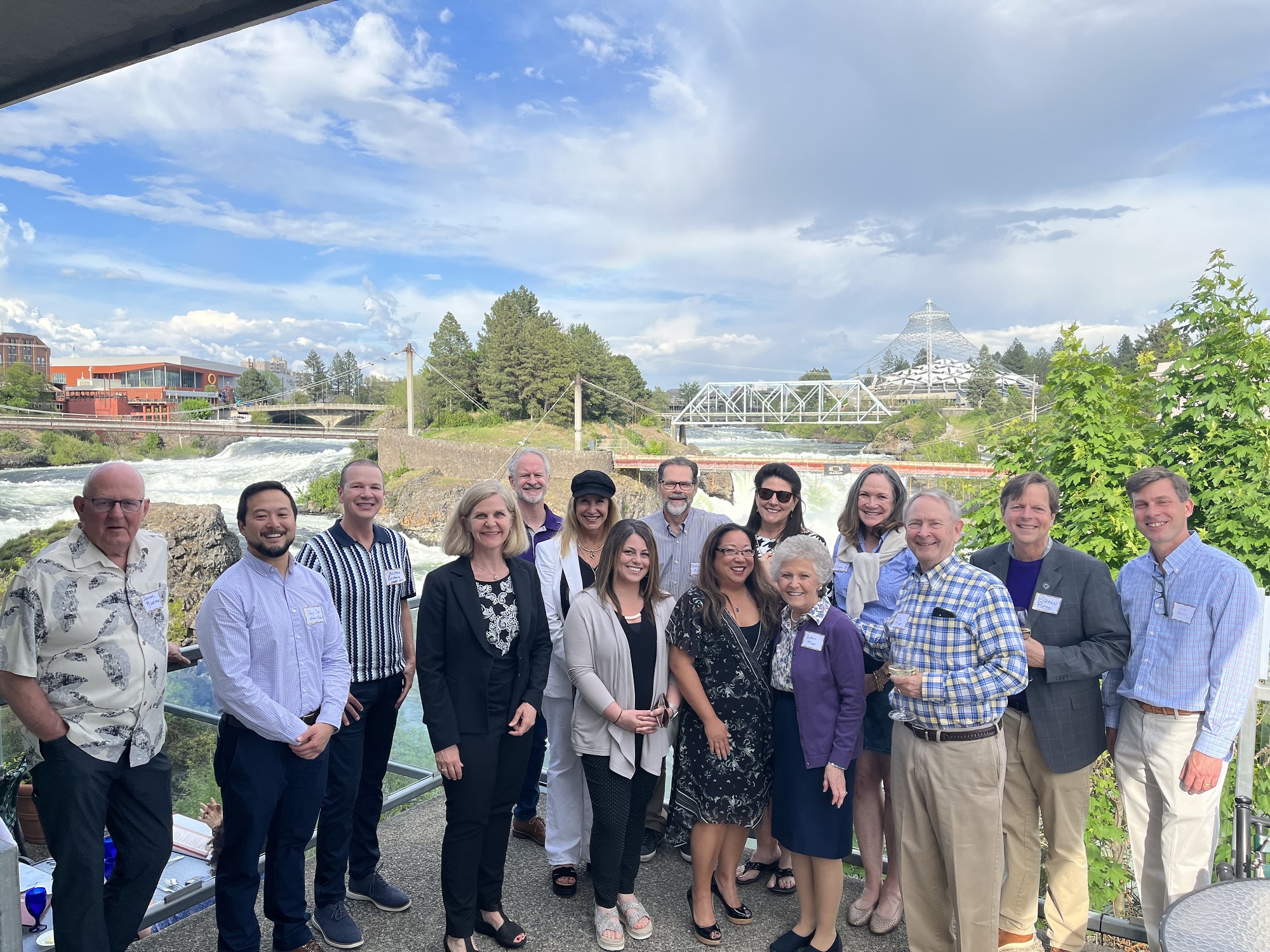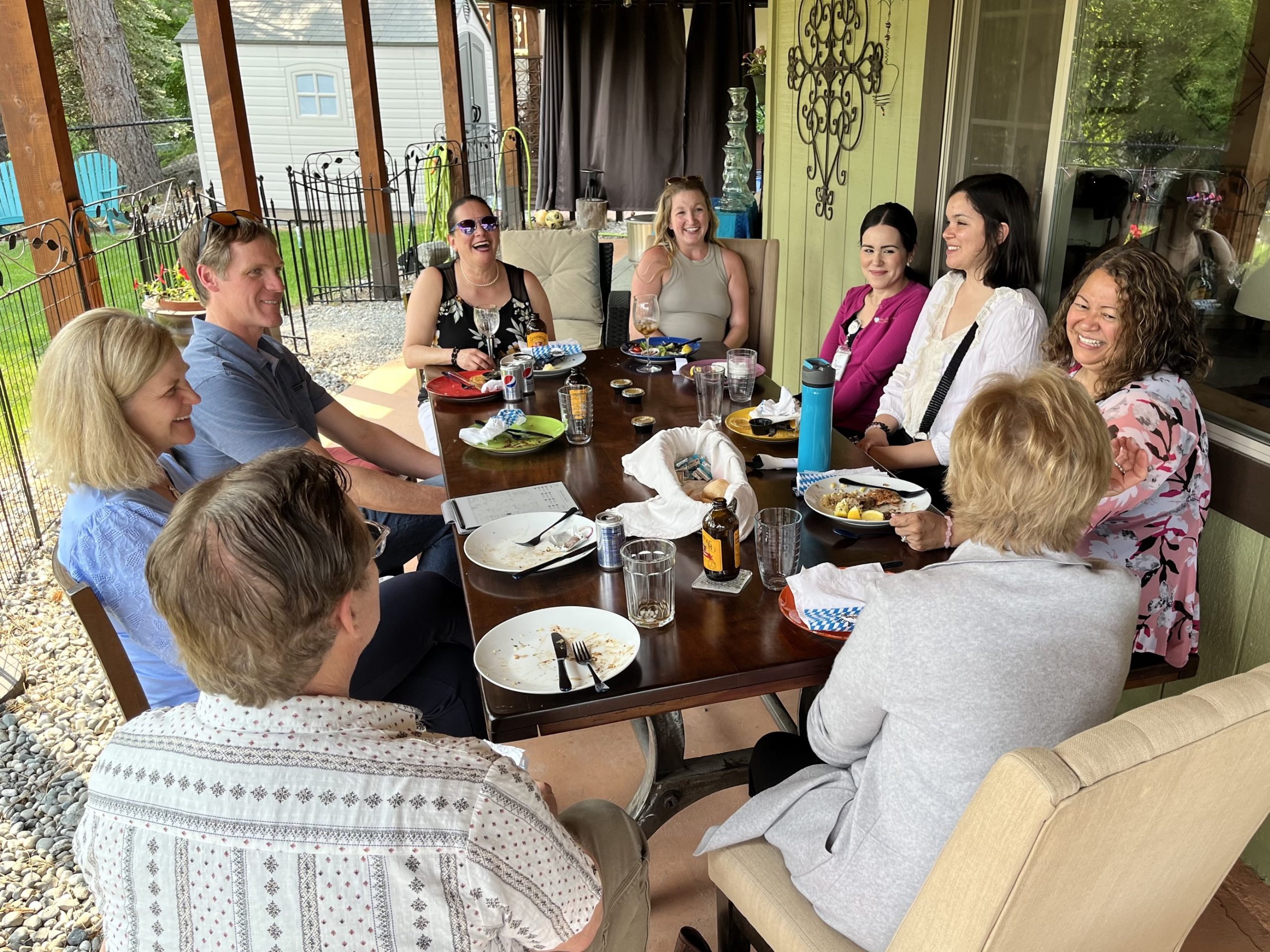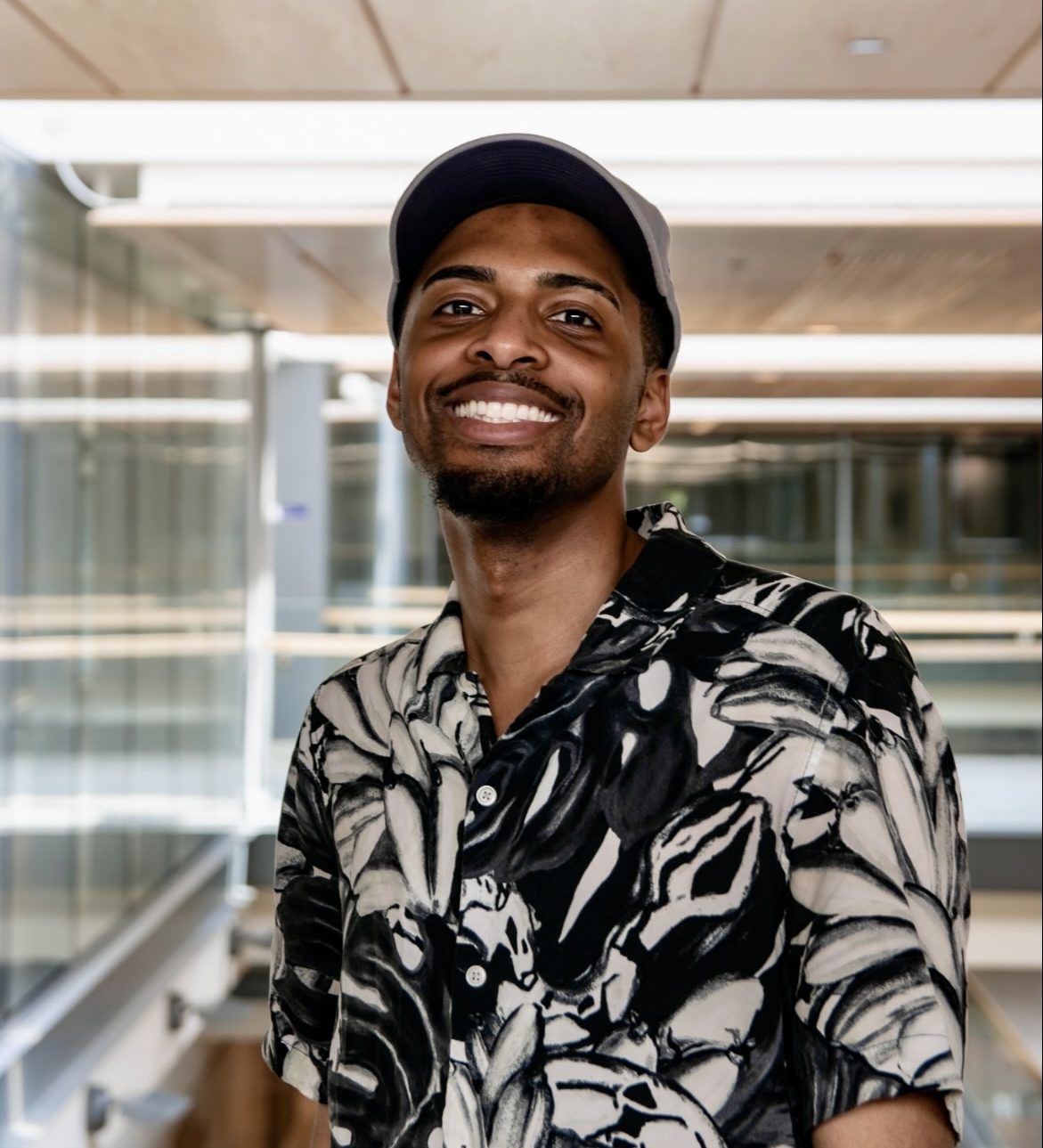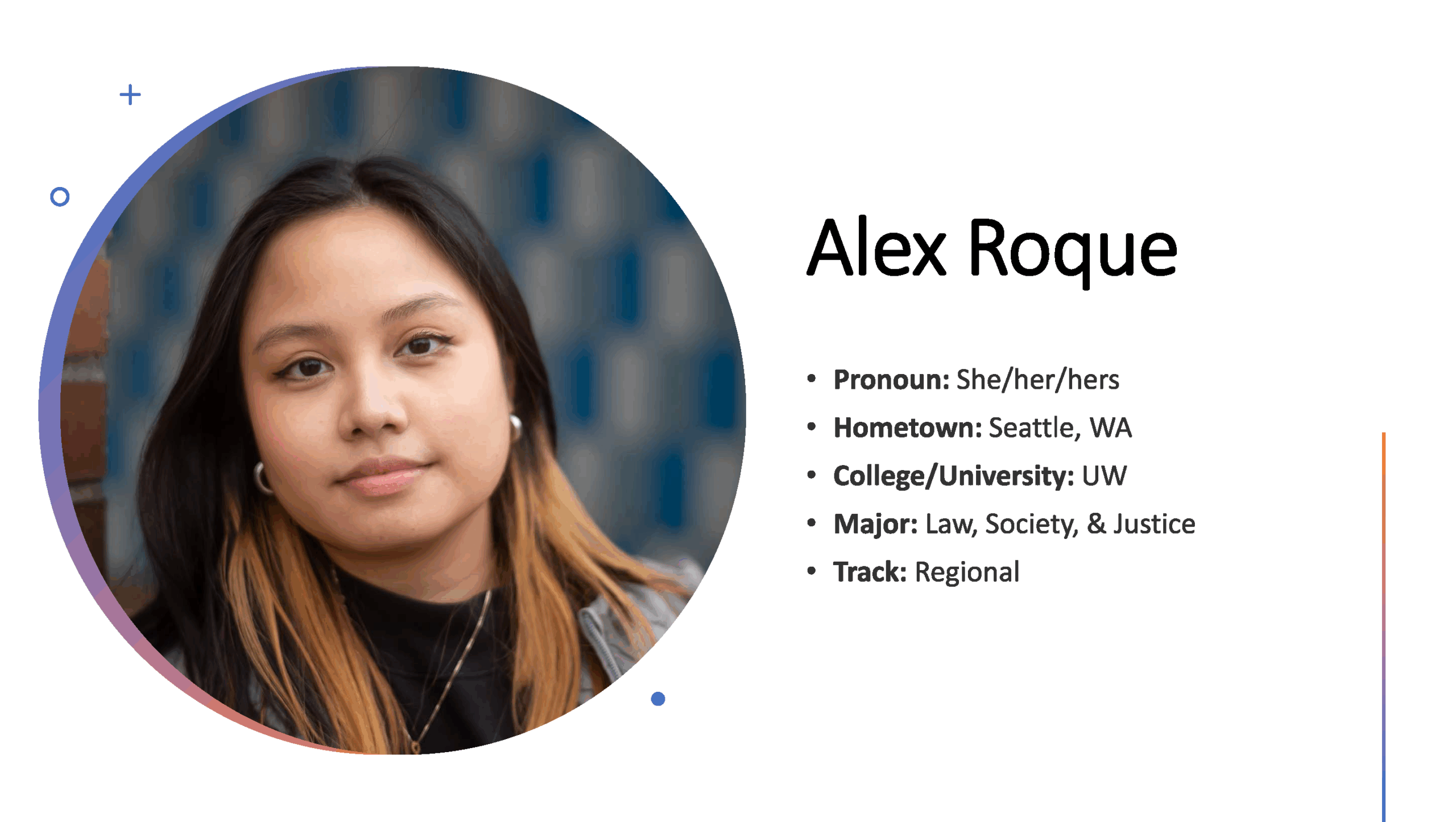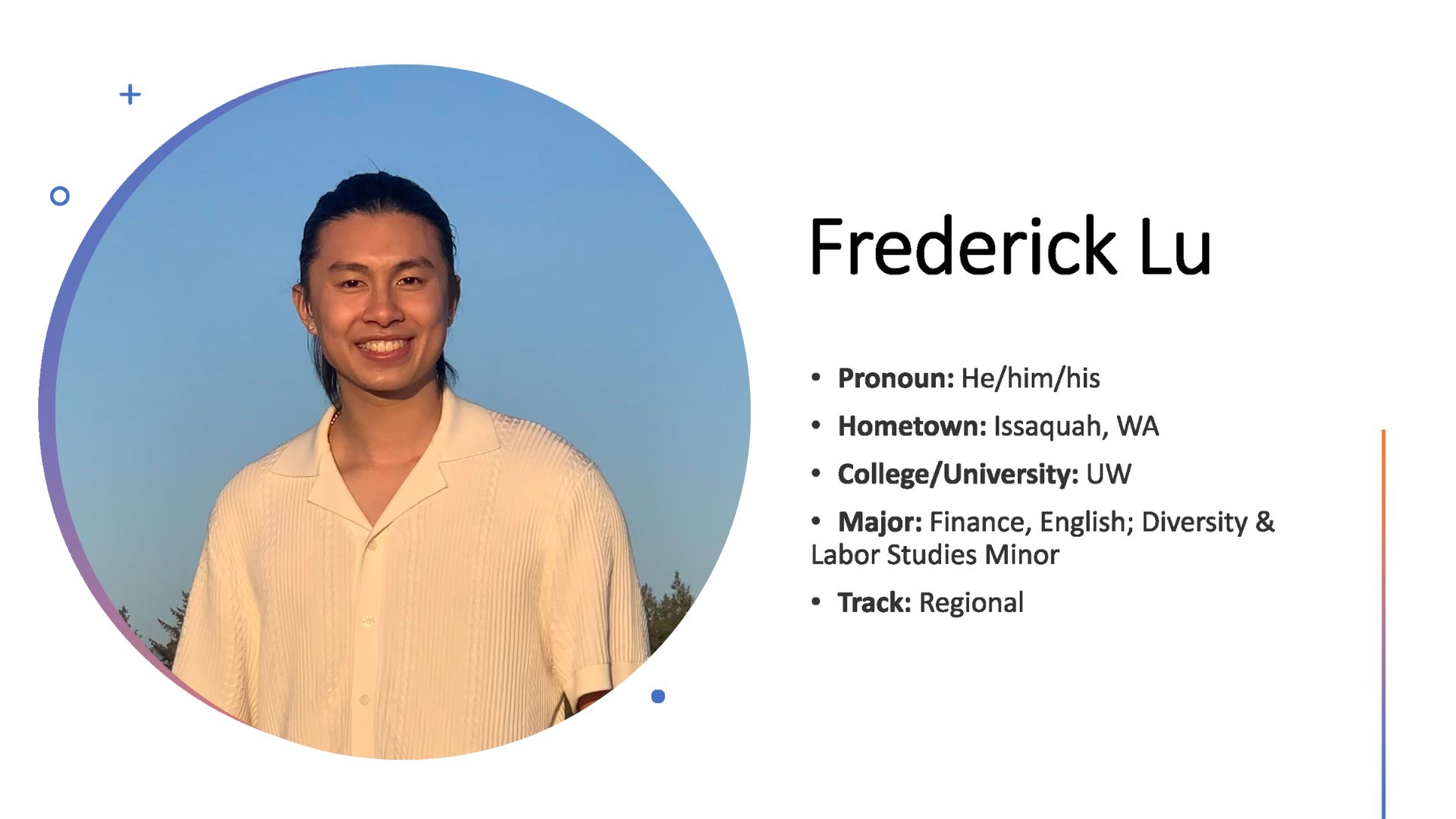Describe your journey towards pursuing your degree at Evans. What inspired you to pursue a career in public service?
Growing up, my father was in and out of prison. Like many Black men, he is a victim of a system designed to determine your life expectancy by your zip code. As a Black man in America, I have always cared deeply about righting the injustices my father and many others have faced. I can’t make excuses for him, but I can recognize that when you grow up in an underfunded and overpoliced community, your future and life opportunities are bleak. My journey to the policy world and Evans is about justice for those suffering under oppressive systems. I want to utilize the tools here at Evans to create a brighter future for communities of color.
Evans School is preparing to welcome the 2023 cohort of the Junior Summer Institute to campus. You were involved with JSI as an undergraduate student: could you share more about your time with JSI and the impact it made on your academic career and goals?
In 2019, I attended the JSI program at the Ford School of Public Policy at the University of Michigan. Prior to this, I had no intention of attending graduate school. JSI was an opportunity for me to see what the experience would look like and I thrived there. I took graduate-level policy, economics, and statistics courses. After the program was done, I knew I wanted to attend graduate school. JSI gave students from underrepresented backgrounds an experience like no other. We had students, staff, and faculty push us to be our best selves during this program. Now, most of the classmates in my JSI cohort have already or are currently pursuing their MPA.
The Evans School’s values are equity, courage, and service. In what ways have these values shaped your time as a student?
In January 2022, three months after moving to Seattle, I was appointed by Governor Jay Inslee to the Washington Student Achievement Council (WSAC). WSAC is a state agency tasked with raising educational attainment throughout the state and I continue to have the privilege of representing graduate students on council. I get to work on issues such as retention and recruitment, telehealth for students, and increased funding for students. Without the reputation of the Evans School’s commitment to equity, courage, and service, I felt that this appointment would not have happened.
You serve in leadership on the Graduate and Professional Student Senate (GPSS). Could you share more about your role with GPSS and how the Evans School has shaped that work?
I am the Vice President of Internal Affairs for the Graduate and Professional Student Senate (GPSS), which serves as the representative body for graduate students at the UW. In my role, I am responsible for event planning for graduate students across campus and for hiring GPSS staff. In a post-COVID world, it’s very important for students to have events to attend and opportunities to relax. I served as the vice president and president of my student body as an undergraduate, and I’ve continued in student leadership as a graduate student at Evans. Those who join student government do so because it’s a service and at the root of my heart is service. I love this work and I’m grateful I get to serve my fellow students in this capacity.
In addition to your role with GPSS, you’ve also recently returned from a week-long trip in Washington D.C. as part of the class of the Institute for a Democratic Future (IDF). Could you share more about your time with IDF?
Throughout the year, our cohort has spent ten intensive weekends meeting with leaders across Washington state, including local, state, federal, and native elected officials. Recently, we spent one full week in D.C. to meet with Democratic stakeholders, think tanks focusing on Arab American policy relations, and other leaders. This program has enlightened me on the issues impacting our own state. Policy in Washington is centered around Seattle and other major urban hubs, but having the opportunity to explore Eastern Washington and other rural areas reminded me why I went to graduate school in the first place – to improve the quality of life for underfunded and underrepresented communities. My north star, my heart, and my life are all rooted in service and I’m grateful to have participated in a program that aligns with my values.
What is the impact that you hope to leave as alumni of Evans and as you embark on your career journey?
I hope my impact is one of resilience and community. Graduate school has its trials and tribulations. There were more times than not when I wanted to drop out. However, I found a community here that pushed me to be better and do better. You might enter graduate school as an individual, but you leave here with a community. I’m better off for it.
